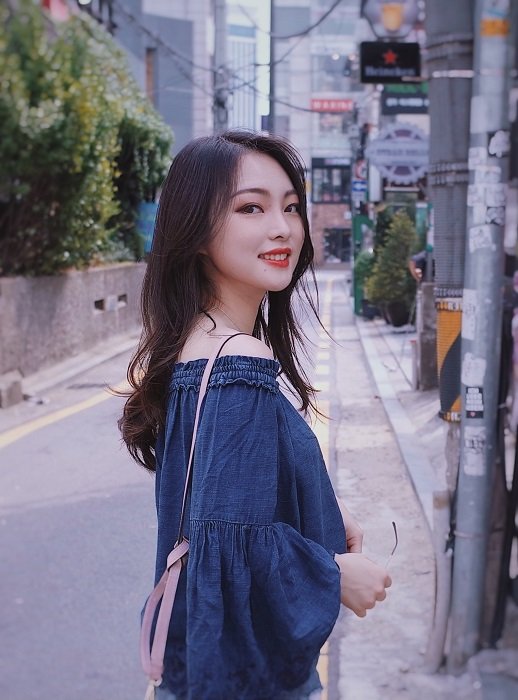A Beautiful Accident, Awards & Theatres: An Interview With Lizzy Yang Liu
Based in Los Angeles, California, Lizzy Yang Liu has written and directed several award-winning films such as A Matter of Time, World Without End, and Tessellation. Her work has been nominated for and won many international film festivals, such as LA Shorts(Oscar, BAFTA qualified), Holly Shorts(Oscar qualified), WorldFest-Houston International Film Festival, and New York City Independent Film Festival.
In our interview below, she talks about her motivation as a filmmaker and how her move to Beijing led to her discovery of the Beijing Film Academy—which turned out to be the starting point of her award-winning career.
Image courtesy of Yang Liu.SAH: How did you get into filmmaking? Have you always had a passion for filmmaking?
Starting a career in filmmaking was a beautiful "accident" for me. In fact, I loved watching movies and TV series when I was a kid, but I never thought I could become a filmmaker one day. Because of my love for art since I was a child, I met a production designer while I was studying in a studio in Beijing, China by coincidence when I was 17.
The person taught me a lot of things about the film industry and production design.
So, I later developed my art talents in film production, and I enrolled in the premier film school, Beijing Film Academy, to study Film Visual Effects as an undergraduate student in 2013. After that, I fell more and more in love with filmmaking, so I moved to Boston to pursue graduate studies in film and media arts at Emerson College.
SAH: You’ve gained many awards and produced credits in short films. Which one was your favorite to work on and why?
The film that I remember most is Tessellation, a film I worked on in Boston, which describes three different generations in New York City, about homosexuality, tradition, race, and family. I thought the subject matter of the film was very meaningful, and I learned a lot about this aspect of American history by doing research and preparing in pre-production for the shooting.
The diverse crew, with filmmakers from different regions and cultures, it very amazing to work with! I hope to shoot more film content about this LGBTQ+ theme in the future as well.
SAH: When you are directing a film, is there room for improvisation, or do you stick to your script?
I would choose to balance the two very well. In production, I want the overall production and acting to follow the direction of the script and the lines, but during rehearsals and filming, if the actors have better ideas, I will listen to their thoughts and if the words make sense, we are free to play around by following the main storyline.
A World Without End. Film Poster. Courtesy of Yang Liu.Matter Of Time. Film Poster. Courtesy of Yang Liu.SAH: When did you first develop the idea for a film, and how did you go about fleshing out the narrative?
I will write a character biography and a film synopsis first because it will allow me to think about details I hadn't thought about in the process of writing. Basically, I will write the synopsis according to my first instincts and ideas, because I think I can discard some of the boxes up front and write in a more “stream-of-consciousness” way.
After I finish, I will slowly revise the first draft and then form a more complete outline.
SAH: When and where can viewers watch your work?
My films have screened in some major theatres before, including Hollywood TCL Chinese Theaters, Newport Beach, Victoria, Canada, and so on. You can check out my website:www.yangliulizzy.com to view the trailers and screenshots.
SAH: What do you hope people will take away from viewing your films?
Because my works generally focus on marginalized people, women, and families, with the topic of social reality. So I hope that after watching my films, audiences can relate to their own experiences or to the people and circumstances around them and have their own unique insights.
She Is Dangerous. Film Poster. Courtesy of Yang Liu.SAH: Do you have any advice or tips you would offer anyone wanting to create their own short film?
When searching for a theme for your work, you may want to think about and examine your own life experiences and surroundings, as well as reflect on the issues that concern you most in your daily life. Because I believe that everyone's life is unique, I am sure you will find different aspects from others to create short films.
SAH: How has your film school experience continued to inform your work?
The film school experience has really helped me a lot in creating my films. First of all, in terms of theory and aesthetics, my education through the school has improved my perception, not only just the technical stuff.
Secondly, the classmates I met in school are considered my homies. We kept in touch even after we graduated and often created and shot together. I think the experience of studying film in school was very valuable to me.
SAH: Do you have a favorite film or filmmaker? If so, who and/or what are they?
LYL: Of course, my favorite is a Japanese director Hirokazu Koreeda, my wish is to meet and talk with him one day! Hirokazu Koreeda’s films always give people very warm and delicate feelings, such as “Shoplifters”, "Stilling Walking", and “Nobody Knows” I have also read his books, and I admire his philosophy and his devotion to life and filmmaking.
SAH: What's next for you?
I will keep writing new feature scripts and producing independent films! We will meet soon in theatres!




